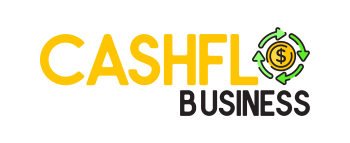
Accounting has long been considered a stalwart in the professional world – a testament to meticulous detail and the human capacity for organisation amongst a sea of numbers. However, as the dawn of advanced artificial intelligence and machine learning ushers in an era of unprecedented automation, accountants find themselves at the center of a heated debate: Are they on the brink of obsoletion, edged out by the very tools that once sought to ease their load?
Some say yes, arguing that accounting software rapidly renders the human accountant null and void. I stand on the heartfelt conviction that such concerns, though not unwarranted, exaggerate the current trajectory of our field.
The Rise of Accounting Software
There’s no denying the meteoric rise of automated accounting tools and the significant disruptions it’s introduced to the industry. Technologies like robust data analytics tools, cloud-based bookkeeping solutions, and the proliferation of Enterprise Resource Planning (ERP) systems have transformed the landscape.
Complex algorithms now churn through massive data sets at unprecedented speeds, identifying trends and producing reports with an accuracy and efficiency that human accountants can scarcely match.
This software has drastically reduced the time it takes to perform routine accounting tasks, freeing up accounting professionals to focus on higher-level financial analysis, strategy, and consultation.
The benefits of software automation in accounting are manifold—from error reduction and cost savings to real-time information availability. These innovations have undoubtedly modernised the accounting profession, making data management and compliance less labor-intensive, which 20 years ago would have seemed a gargantuan task.
Human Expertise in Accounting
Despite the bells and whistles of software, there remain areas where the human accountant reigns supreme. Accounting is not solely about crunching numbers, but about the interpretation of financial data, strategic planning, and the nuanced understanding of legal and ethical implications.
The human expertise in accounting extends to decision-making processes that often defy the logic of automated systems. Human accountants think critically, apply judgment to grey areas, and offer bespoke services tailored to the unique needs of their clients or organisations. They possess an invaluable ability to foresee and manage financial risk, a quality that no machine can replicate without human input, no matter how advanced.
This distinction is not merely philosophical. It is practical. Complex tax strategies, the nuances of regulatory interactions, and the subtleties of financial planning all require a human touch. They demand creative problem-solving and an understanding of the human element within financial operations and management – both of which remain firmly within the realm of human capability.
Complementary Relationship
The most productive and rewarding way to view the relationship between technology and human expertise in accounting is through the lens of a complementary partnership. AI and machine learning algorithms can handle tedious, time-consuming tasks, granting accountants the freedom to engage in more strategic, analytical, and advisory functions.
Accounting software and human accountants can be a powerful pair. The software never sleeps, never tires, and is never perturbed by the intricacies carried by humans.
This symbiotic relationship cultivates an environment where each party maximises its strengths. Accountants leverage technology’s accuracy and efficiency to deliver superior strategic counsel, while software provides the stable foundation upon which accountants can plan and build.
Challenges and Concerns
While I champion the unique value of human accountants, I am not oblivious to the challenges posed by accounting software. There is a real and palpable fear within the industry – a fear of being replaced and redundant. This fear is not unfounded. It is rooted in the massive job shifts witnessed in industries that have quickly adopted automation.
Accountants are now faced with a critical challenge in their professional evolution, the precipice upon which they stand dictates innovation or stagnation. Automation is a powerful force, but not an unstoppable one. It is incumbent upon accountants to skill up, retrain, and adapt to the new landscape.
Continuing professional development is no longer a luxury. It is a necessity, a lifeline that allows accountants to remain relevant and indispensable.
The trajectory of accounting software development must align with these needs. We should see a push for software that complements and augments human accounting services rather than completely replacing them.
A Personal Stance
In my years working within the accounting field, I have witnessed firsthand the evolution of our profession. Technology is not an enemy set to oust humanity from the accounting world but an ally that, with the right guidance, can magnify our capabilities.
I stand firmly in my conviction that accounting software, no matter how advanced, can never completely replace the complexity that a human accountant brings to the table. We are far more than number-crunchers – we are advisors, strategists, and guardians of financial health. Our roles may shift, and our tasks may alter, but the core value we offer to clients and businesses remains steadfast.
It is in our best interests and those we serve to view technology without trepidation but with optimism and curiosity. I am not asking for a parochial view that shuts the door to progress but for a balanced approach that harnesses progress to its fullest potential.
The Path Moving Forward
The future of accounting lies not in resistance to change but in harnessing the power of technology while retaining and refining the irreplaceable qualities of human accountancy. The symbiotic relationship we can forge with technology can elevate our industry to unprecedented levels of effectiveness and insight.
For accountants, this is an exciting juncture, rife with opportunity. Our profession stands at a crossroads, one that inspoires innovation and adaptation, one that champions the coexistence of man and machine. This future is not a distant one. It is here, now, in the tools and technologies that are rapidly integrating into our daily practices.
We’re not witnessing the demise of accounting professionals but rather the metamorphosis of their roles. Accountants should not be afraid of the software that graces their monitors. They should be invigorated by the possibilities it presents.




